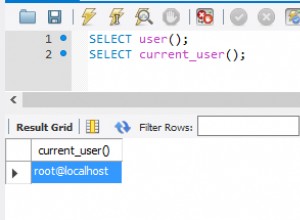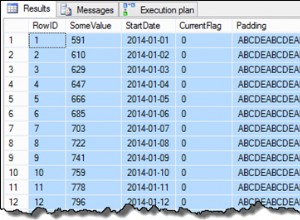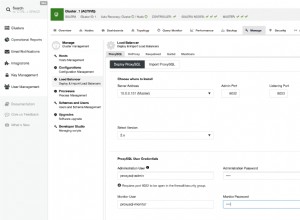Lo mejor que he podido hacer es simplificar parte de la consulta y cambiarla a una función con valores de tabla. Las funciones escalares tienen un rendimiento notoriamente bajo, y el beneficio de un TVF en línea es que la definición de la consulta se expande a la consulta principal, como una vista.
Esto reduce significativamente el tiempo de ejecución en las pruebas que he realizado.
ALTER FUNCTION dbo.FuzySearchTVF (@Reference VARCHAR(200), @Target VARCHAR(200))
RETURNS TABLE
AS
RETURN
( WITH N (n) AS
( SELECT TOP (ISNULL(CASE WHEN DATALENGTH(@Reference) > DATALENGTH(@Target)
THEN DATALENGTH(@Reference)
ELSE DATALENGTH(@Target)
END, 0))
ROW_NUMBER() OVER(ORDER BY n1.n)
FROM (VALUES (1), (1), (1), (1), (1), (1), (1), (1), (1), (1)) AS N1 (n)
CROSS JOIN (VALUES (1), (1), (1), (1), (1), (1), (1), (1), (1), (1)) AS N2 (n)
CROSS JOIN (VALUES (1), (1)) AS N3 (n)
WHERE @Reference IS NOT NULL AND @Target IS NOT NULL
), Src AS
( SELECT Reference = CASE WHEN DATALENGTH(@Reference) > DATALENGTH(@Target) THEN @Reference
ELSE @Reference + REPLICATE('_', DATALENGTH(@Target) - DATALENGTH(@Reference))
END,
Target = CASE WHEN DATALENGTH(@Target) > DATALENGTH(@Reference) THEN @Target
ELSE @Target + REPLICATE('_', DATALENGTH(@Target) - DATALENGTH(@Reference))
END,
WordLength = CASE WHEN DATALENGTH(@Reference) > DATALENGTH(@Target) THEN DATALENGTH(@Reference) ELSE DATALENGTH(@Target) END
WHERE @Reference IS NOT NULL
AND @Target IS NOT NULL
AND @Reference != @Target
), Scores AS
( SELECT seq = t1.n ,
Letter = SUBSTRING(s.Reference, t1.n, 1),
s.WordLength ,
LetterScore = s.WordLength - ISNULL(MIN(ABS(t1.n - t2.n)), s.WordLength)
FROM Src AS s
CROSS JOIN N AS t1
INNER JOIN N AS t2
ON SUBSTRING(@Target, t2.n, 1) = SUBSTRING(s.Reference, t1.n, 1)
WHERE @Reference IS NOT NULL
AND @Target IS NOT NULL
AND @Reference != @Target
GROUP BY t1.n, SUBSTRING(s.Reference, t1.n, 1), s.WordLength
)
SELECT [Score] = 100
WHERE @Reference = @Target
UNION ALL
SELECT 0
WHERE @Reference IS NULL OR @Target IS NULL
UNION ALL
SELECT CAST(SUM(LetterScore) * 100.0 / MAX(WordLength * WordLength) AS NUMERIC(5, 2))
FROM Scores
WHERE @Reference IS NOT NULL
AND @Target IS NOT NULL
AND @Reference != @Target
GROUP BY WordLength
);
Y esto se llamaría como:
SELECT f.Score
FROM dbo.Customer AS c
CROSS APPLY [dbo].[FuzySearch]('First Name Middle Name Last Name', c.FirstName) AS f
Sin embargo, sigue siendo una función bastante compleja y, dependiendo de la cantidad de registros en la tabla de clientes, creo que reducirla a 1 segundo será un desafío.




